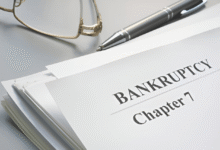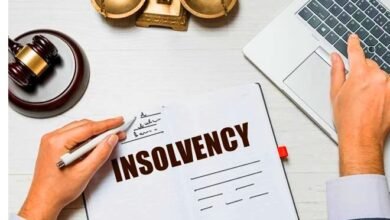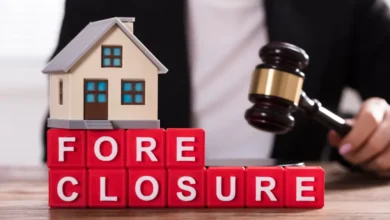Bankruptcy and Taxes: Sorting Out the Liabilities

Bankruptcy is a financial process that can give individuals and businesses a fresh start by allowing them to restructure or eliminate their debts under the court’s protection. However, the intersection of bankruptcy and taxes introduces complexity that requires careful consideration. This article will delve into the intricate relationship between bankruptcy and taxes, aiming to unravel the complexities associated with liabilities during this challenging financial period.
From understanding the different types of bankruptcy to exploring tax implications, we will guide you through the essential aspects of sorting out the liabilities where bankruptcy and taxes intersect. Join us on this informative journey as we shed light on how individuals can navigate the intricate landscape of financial recovery while ensuring a clear understanding of their tax obligations.
Understanding Bankruptcy
Bankruptcy comes in various forms, with Chapter 7 and Chapter 13 being the most common for individuals. Chapter 7 involves liquidating assets to pay off debts, while Chapter 13 creates a repayment plan. Understanding these fundamental concepts is crucial before delving into the tax implications.
Tax Implications During Bankruptcy
Treatment of Assets
Assets are handled differently in bankruptcy, and understanding their treatment is vital. Some purchases may be exempt, while others could be used to satisfy debts.
Dischargeable and Nondischargeable Debts
Certain debts may be discharged in bankruptcy, while others may persist. Knowing which debts fall into each category is essential to managing financial obligations effectively.
Bankruptcy and Income Taxes
Impact on Income Tax Liability
Bankruptcy can have a significant impact on income tax liability. Knowing how your tax liability may be affected is crucial for proper financial planning.
Tax Consequences of Forgiven Debts
Debts forgiven during bankruptcy may have tax consequences. Understanding these consequences helps individuals prepare for potential tax obligations.
Chapter 7 Bankruptcy and Tax Debts
Resolving Tax Debts through Chapter 7
Chapter 7 bankruptcy can relieve tax debts, but eligibility criteria must be met. Exploring this option requires a thorough understanding of the process.
Eligibility Criteria
Not everyone qualifies for Chapter 7 bankruptcy. Knowing the eligibility criteria is essential before pursuing this option to address tax debts.
Chapter 13 Bankruptcy and Tax Debts
Repayment Plans for Tax Debts
Chapter 13 bankruptcy involves creating a repayment plan, including tax debts. Understanding how these plans work is crucial for individuals seeking a structured approach to debt resolution.
Duration and Benefits
Chapter 13 bankruptcy has specific durations and benefits. Knowing what to expect during this period is vital for successful financial recovery.
Bankruptcy’s Effect on Tax Liens
How Tax Liens Are Affected
Bankruptcy can impact existing tax liens. Understanding the effect of tax liens helps individuals navigate the complexities of their financial situation.
Resolving Tax Liens through Bankruptcy
Bankruptcy may provide a path to resolving tax liens. Exploring this option requires a clear understanding of the legal processes involved.
Read More: Debt Snowball Method: Crushing Debts One at a Time
Bankruptcy and Tax Refunds
Handling Tax Refunds during Bankruptcy
Tax refunds are treated differently during bankruptcy. Knowing how to handle tax refunds ensures compliance with legal requirements.
Impact on Future Refunds
Bankruptcy can influence future tax refunds. Understanding this impact is crucial for individuals planning their finances post-bankruptcy.
Common Misconceptions
Addressing common myths about bankruptcy and taxes is essential to providing accurate information. Dispelling misconceptions empowers individuals to make informed decisions.
Seeking Professional Advice
Given the complexity of bankruptcy and its tax implications, seeking professional advice is paramount. Consulting a tax professional ensures individuals receive personalized guidance based on their financial situation.
Case Studies
Examining real-life examples of individuals navigating bankruptcy and taxes provides practical insights into the challenges and solutions encountered.
Tips for Minimizing Tax Liabilities
Strategies for reducing tax burdens during and after bankruptcy can significantly impact an individual’s financial recovery. Implementing these tips enhances long-term financial stability.
Future Financial Planning
Rebuilding credit after bankruptcy and planning for future tax obligations are critical components of a comprehensive financial strategy.
Legal Considerations
Understanding the legal aspects of bankruptcy and taxes ensures individuals comply with regulations and make informed decisions.
Read More: Bankruptcy vs. Debt Settlement: Pros and Cons
Conclusion
In conclusion, navigating the intersection of bankruptcy and taxes requires a comprehensive understanding of the legal processes involved. Awareness of the implications of income tax, assets, and debts is crucial for making informed decisions and securing a stable financial future.
FAQs(Bankruptcy and Taxes)
Can bankruptcy eliminate all types of debts?
Bankruptcy may discharge certain debts, but not all. Consult with a professional to understand which debts can be eliminated.
How does Chapter 13 bankruptcy differ from Chapter 7 regarding tax debts?
Chapter 13 involves creating a repayment plan, while Chapter 7 focuses on liquidating assets. The approach to tax debts varies accordingly.
Are all tax liens affected by bankruptcy?
Bankruptcy can impact tax liens, but the extent depends on the specific circumstances. Seek professional advice for a personalized assessment.
Can I rebuild my credit after bankruptcy?
Yes, it is possible to rebuild credit after bankruptcy. Implementing sound financial practices and seeking guidance can expedite the process.
Why is consulting a tax professional during bankruptcy essential?
A tax professional can provide personalized advice, ensuring compliance with tax laws and optimizing the financial outcome of bankruptcy.












One Comment